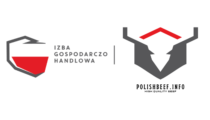Agriculture in South Korea
- Natural and demographic factors mean that the Republic of Korea is not self-sufficient in food production.
- 70% of the country is mountainous terrain, which is not conducive to agricultural development, but it is possible. Arable land covers 16.6% of South Korea’s land area (almost 40% in Poland).
- The Republic of Korea has been a net importer of agri-food commodities for years, and the country’s food production relies heavily on imported raw materials.
- Imported raw materials for production including finished products imported from abroad account for about half of the food in the Korean market in value terms.
- Other Polish products with significant chances of increasing sales on the Korean market include products of the milling industry, i.e. wheat flour and potato starch, milk products for industrial use (casein and caseinates, whey powders, lactose), as well as chokeberry concentrate.
